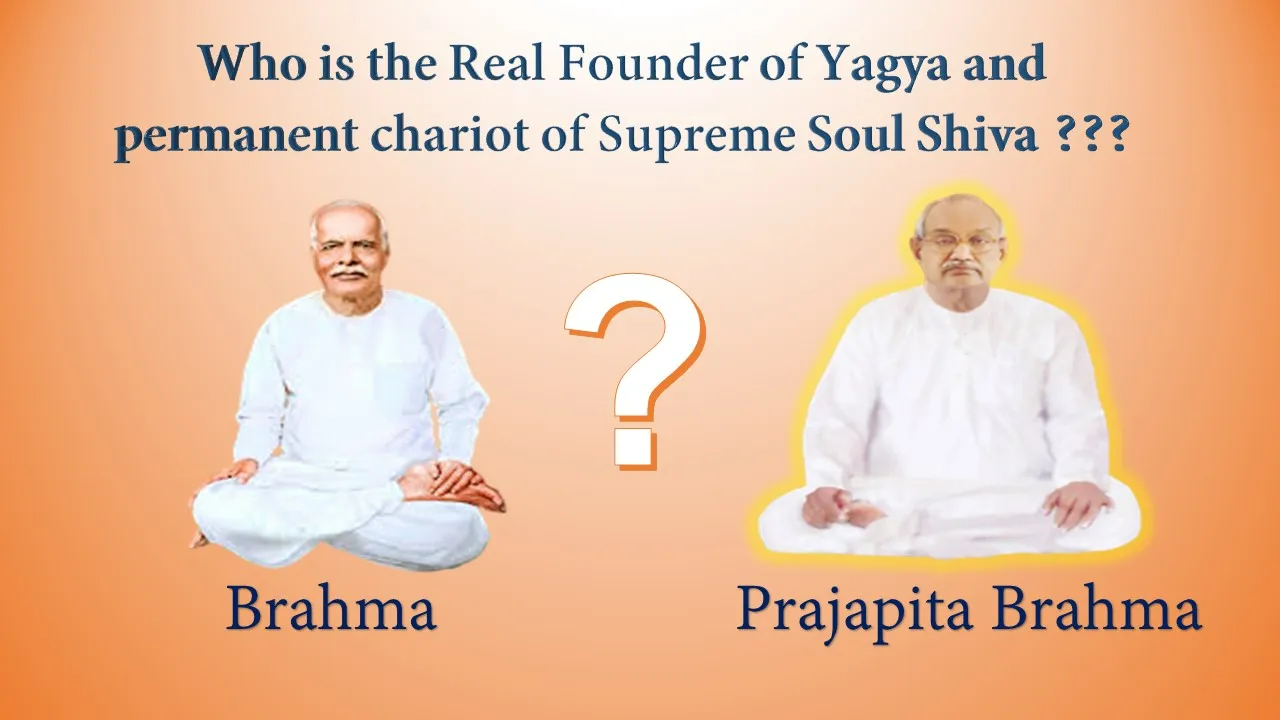All these three parts are played by the same soul and they aren’t of Brahma Baba. It is not necessary that whomever Shiva enters, he is the actor who plays the role of the Father, the Teacher and the Sadguru, because there are five heads of Brahma. This isn’t applicable for all the heads of Brahma. A seed yields fruit just according to the land [where it is sown]. Similarly, this too depends on the worthiness of the personality. Only the head of Brahma that faces upwards has that worthiness; he is the permanent support of Sadashiva Jyoti (the Forever Benevolent Light) in the beginning, middle and the end as well. The proofs for this are given in the murlis:
1. Krishna is the number one bodily being. He can’t be called the Father, the Teacher [and] the Satguru. (Mu. 19.12.74, beginning of the middle part of pg. 1)
2. You have become the Father’s children. You are receiving teachings from this one in the form of the Teacher. He will become the (corporeal) Sadguru, (an agent) in the end and take you to the land of truth. He performs all the three tasks in practice. (Mu. 17.02.73, beginning of pg. 1)
3. There (among the BKs as well), you didn’t find the Father, you didn’t find the Teacher but they became your guru immediately. Here, the knowledge is so systematic. Here, I alone am your Father, Teacher [and] Guru. (Mu. 20.04.72, end of pg. 2)
4. There isn’t anyone who would say: I am the father, the teacher and the guru as well. This Brahma can’t say it either. One Shivbaba alone says: I am the Father, the Teacher [and] the Guru of everyone. (Mu. 19.10.76, beginning of the middle part of pg. 1)
5. You won’t receive anything at all from Brahma. You receive the inheritance only from the Father through these ones. As for the rest, Brahma has no value. (Mu. 03.02.67, end of pg. 2)
6. There is just one Sadguru. That one is even the guru of Brahma. (Mu. 04.09.72, end of pg. 3)
7. Both, these mother and father, Brahma and Saraswati are sitting below the Kalpa Tree. They are learning Raja Yoga. So certainly, they need a guru. (Mu. 28.01.73, beginning of the middle part of pg. 2)
8. That one (agent) Sadguru is even the Purifier of Brahma. The true Baba, the true Teacher, the true Guru (Sadguru), all the three are together.” (Mu. 25.09.73, end of pg. 2)


